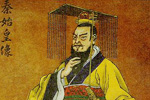言論自由為何雙重標準
陳日君出聲支持「佔中」可以接受,但鄺保羅批評發起「佔中」預演的學生
卻不可接受了?這不是雙重標準嗎?..............我現在時常懷疑,香港人是否
明白言論自由和民主的真實含義。最近這兩則插曲令我相信,很多香港人並
不明白。 ![]()
![]()
宗教政治不能混為一談 言論自由為何雙重標準
香港聖公會大主教鄺保羅,早前講道時批評部分「七一」示威者,言論引起
爭議。聖公會教區秘書長管浩鳴解釋,鄺保羅的言論被斷章取義,大主教過
往時常用比較幽默和風趣的形式講道,當日引用的例子只是訓勉教徒要學習
耶穌「柔和謙卑」。他重申大主教和聖公會不反對任何人和平遊行,亦無意
矮化或者嘲笑其他人和平遊行,但表明不鼓勵教友參與「佔中」。
佔中發起人之一朱耀明表示,宣道時應該慎言,無論如何幽默風趣,都應該
要公道。社民連梁國雄聯同團體「維園衝鋒」幾名成員,到中環聖約翰座堂
外抗議,要求鄺保羅為相關言論負責。對於有人批評鄺保羅大主教的言論
「涼薄」,管浩鳴認為要公道,不要只輯錄其中一兩句作批評。他又指,今
日的香港欠缺心平氣和,相信大主教希望無論是否教友,心都要有平安。
同為宗教界人士,天主教前香港主教陳日君樞機不滿警方警告「毅行爭普
選」人士違法,質疑特區政府故意威嚇爭取普選市民。鄺保羅與陳日君兩位
宗教界人士,都發表了對香港政改的看法,香港人一貫對宗教領袖保持尊敬
態度,兩人的言論會引發怎樣的反響?政黨和傳媒對此的反應,又證明瞭甚
麼問題呢?我們先來聽聽名記者MICHAEL CHUGANI的觀點:
「宗教和政治不能混為一談,歷史已經不斷證明了這一點。如果兩者混為一
談,常常會引發暴力衝突。宗教結合政治,引發了穆斯林和基督徒之間的戰
爭,這場戰爭從公元11世紀持續至公元13世紀,史稱「十字軍東征」。在近
代,世界見證了北愛爾蘭新教徒和天主教徒之間長久持續的衝突,這正是帶
有宗教色彩的政治對抗。今天的印度,穆斯林和印度教徒之間仍然劍拔弩
張。伊拉克的遜尼派和什葉派之間、以色列猶太人和巴勒斯坦穆斯林之間,
又爆發了新的暴力衝突。
謝天謝地,即使宗教和政治混在一起,香港的暴力行動尚未爆發。但是我們
亦經常看到由此引發的緊張政治局勢。陳日君樞機利用他的位置去宣揚自己
的政治觀點時,經常引起緊張氣氛,針對中國內地,特別是他在擔任天主教
香港教區主教的時期。最近,他鼓勵香港市民在「六二二」公投中投票,他
還參加了今年的七一遊行,起到了重要的作用。他甚至加入了「毅行爭普
選」,被泛民主派頂禮膜拜,視為英雄。
鄺保羅,香港聖公會的大主教,上個星期也談論起政治。在一場星期天的佈
道會上,他說耶穌被判死刑時默默無聲,香港的民主鬥士也應如此。但是,
雖然鄺保羅和陳日君都以宗教人的身份談論政治,大多數香港人允許陳日君
去自由表達他的政治觀點,卻殘酷攻擊鄺保羅。
原因是甚麽呢?難道言論自由不是每個香港市民的權利嗎?難道不是經常自
詡這是我們的核心價值之一嗎?為什麽陳日君被泛民主派膜拜為英雄,讚美
他為支持民主而發聲,而鄺保羅卻因為呼籲民主鬥士像耶穌一樣,而被譴責
為「中國內地的走狗」?香港的言論自由本應該適用於任何人,甚至包括所
謂的「中國的傀儡」。但是似乎現實並非如此。
對鄺保羅的惡毒攻擊令我震驚,更令我震驚的是「佔中」發起人之一的牧師
朱耀明也參與了攻擊。難道對他來說,陳日君出聲支持「佔中」可以接受,
但鄺保羅批評發起「佔中」預演的學生卻不可接受了?這不是雙重標準嗎?
鄺保羅被如此嚴厲地譴責,聖公會在威迫之下,不得不用更溫和的含義去解
讀他的話。這完全是一種自我審查。那些總是抱怨香港存在自我審查的人,
現在強迫鄺保羅自我審查。滙豐銀行發布了一份報告,警告佔中會損害香港
的經濟,同樣是這些人,疾言厲色地聲討滙豐,令滙豐不得不迫於壓力修改
報告。這就是言論自由的「鬥士們」發起的自我審查。
我現在時常懷疑,香港人是否明白言論自由和民主的真實含義。最近這兩則
插曲令我相信,很多香港人並不明白。」
Michael在文章中指出,同為宗教人士發表政治觀點,陳日君被泛民主派膜拜
為英雄,贊美他為支持民主而發聲,鄺保羅卻因為呼籲民主鬥士像耶穌一樣
被齊聲攻擊,鄺保羅被如此嚴厲地譴責,Michael表示震驚。宗教、政治本不
能混為一談,但泛民主派為何對於言論自由持有雙重標準?
Religion and politics don't mix. History has proven that over and over again. Violence often results when the two are mixed. Religion mixed with politics produced the Crusades – wars between Muslims and Christians that began in the 11 century and ended in the 13th century. In more recent times the world saw the long-lasting conflict in Northern Ireland between the Protestants and the Catholics, which was mostly a political confrontation tinged with religion. Today, tensions continue between Muslims and Hindus in India. And new violence has broken out between the Sunnis and Shiites in Iraq, and between Jews in Israel and Muslim Palestinians.
Thankfully, violence has never erupted in Hong Kong when religion is mixed with politics. But we often see political tensions when the two are mixed here. Cardinal Joseph Zen Ze-kiun often aroused tensions, particularly with China, when he used his position to advance his political views, especially when he was the Catholic Bishop of Hong Kong. More recently he has played an active role in urging Hong Kong people to vote in an unofficial referendum on democracy and to participate in this year’s July 1 march. He even joined a walkathon to promote democracy. He is worshipped as a hero by the democracy camp.
Paul Kwong, the Archbishop of the Hong Kong Sheng Kung Hui, or Anglican Church, also mixed religion with politics last week in a Sunday sermon when he asked democracy activists to remain silent, as Jesus did at the time of his crucifixion. But while most Hongkongers have allowed Cardinal Zen to freely express his political views, Archbishop Kwong has come under fierce attack for mixing religion with politics.
Why is that? Isn’t free speech a right of every Hong Kong person? Don’t we always say it is one of our core values? So why is it that Cardinal Zen is worshipped as a hero by the democracy camp for speaking out in support of democracy but Archbishop Kwong is castigated as a China stooge for urging activists to be like Jesus? Surely, free speech in Hong Kong applies to everyone, even supposed China puppets. But it seems not.
The vicious attacks against Archbishop Kwong startled me. What startled me even more was that Occupy Central co-organizer the Reverend Chu Yiu-ming joined in the attacks. Isn’t it double-standards for him to think it is acceptable for Cardinal Zen to speak out in support of Occupy Central but not acceptable for Archbishop Kwong to criticize students who held an Occupy Central rehearsal?
Archbishop Kwong was so fiercely criticized that the Anglican Church was browbeaten into having to put a softer meaning on what he said. This is self-censorship. The same people who always complain about self-censorship in Hong Kong forced Archbishop Kwong into self-censorship. These same people also so fiercely criticized HSBC for releasing a report warning that Occupy Central could hurt Hong Kong’s economy that HSBC had to amend the report. That too was self-censorship forced on it by supposed champions of free speech.
I often wonder nowadays if Hong Kong people really understand the true meaning of free speech and democracy. These two recent incidents have convinced me that many Hong Kong people do not understand it.
http://hkatv.com/zh-hk/video/12904/ATV焦點/宗教政治不能混為一談 言論自由為何雙重標準

